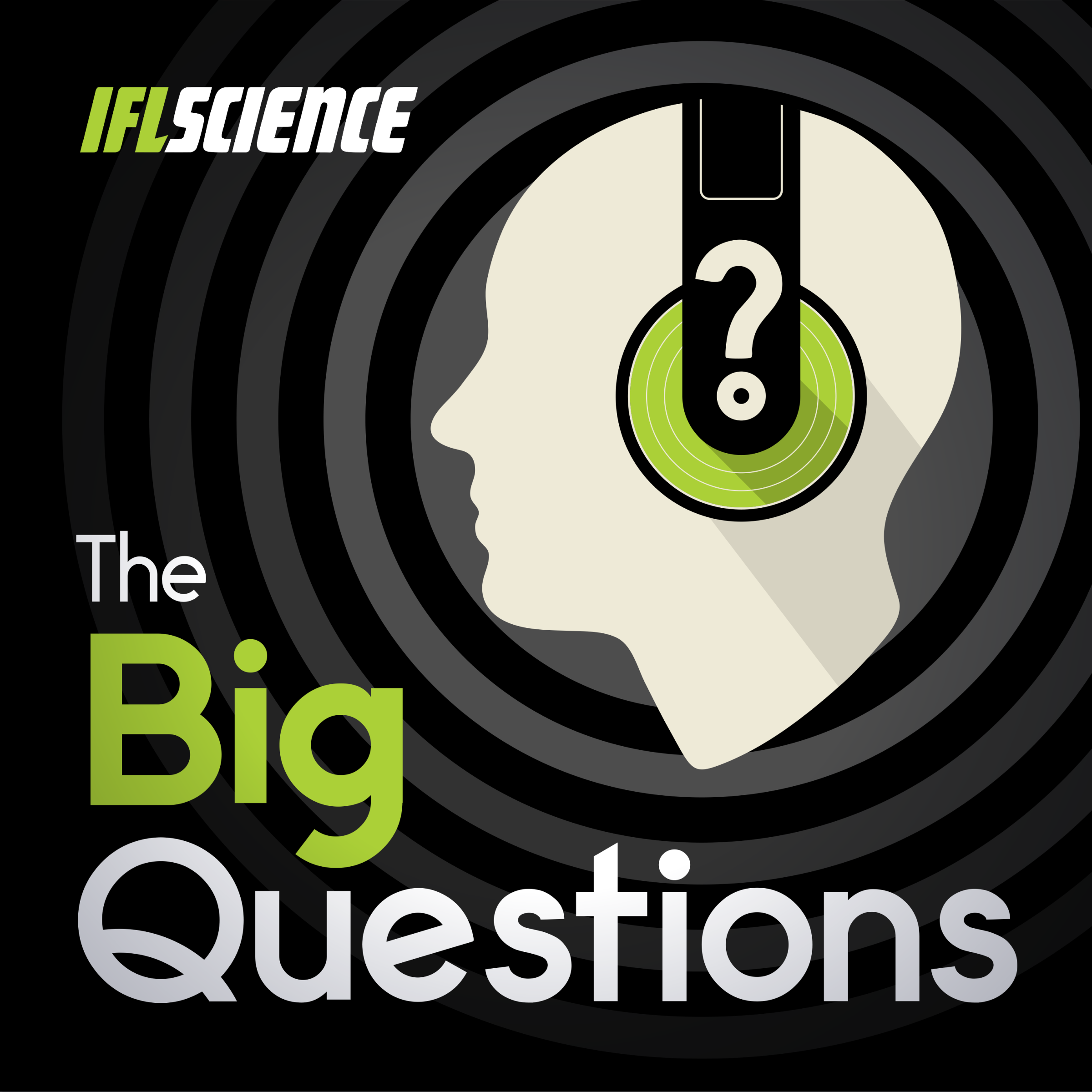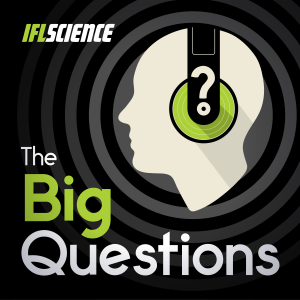
762.5K
Downloads
53
Episodes
From saving the planet to understanding ourselves, this podcast sees experts discuss the major topics of our times. Hosted by IFLScience’s Dr Alfredo Carpineti, Rachael Funnell, Dr Russell Moul, Laura Simmons, and Eleanor Higgs.
From saving the planet to understanding ourselves, this podcast sees experts discuss the major topics of our times. Hosted by IFLScience’s Dr Alfredo Carpineti, Rachael Funnell, Dr Russell Moul, Laura Simmons, and Eleanor Higgs.
Episodes

Friday Sep 01, 2023
What Is Ancient Ice Telling Us About The Future?
Friday Sep 01, 2023
Friday Sep 01, 2023
There are many methods that allow us to look back into Earth’s past and study its climate, including the collection of ice cores. Extracting ancient ice from deep inside some of the most remote glaciers can reveal how our planet has changed over millions of years. But it’s not just about the past: what is ancient ice telling us about the future?
Host Dr Alfredo Carpineti spoke with Dr Liz Thomas of the Ice Core Research Group at the British Antarctic Survey to discuss how understanding Earth’s changing climate helps refine our models for the future and how the natural world is responding to the unfolding climate crisis.

Friday Aug 18, 2023
What Is Space Weather And How Does It Affect Us?
Friday Aug 18, 2023
Friday Aug 18, 2023
The Sun shapes what goes on in space around our planet. Plasma from our star is continuously thrown at Earth in the form of solar winds or coronal mass ejections, changing the shape of the magnetic field, and affecting the atmosphere and anything in it, like the satellites that we depend on. These changes are part of what we call space weather.
Host Dr Alfredo Carpineti spoke to Dr Nigel Meredith of the British Antarctic Survey about what space weather actually is and how it affects us. We even have some incredible recordings of what these space weather events sound like!

Friday Aug 04, 2023
How Does A Quantum Computer Work And How Will They Change The World?
Friday Aug 04, 2023
Friday Aug 04, 2023
The path beyond the limits of regular computers, even the most powerful supercomputer, lies with the theory of quantum mechanics. Quantum computing promises to change the world, but how do quantum computers work, and how close are we to this fabled new approach to computation?
Host Dr Alfredo Carpineti spoke with Professor Winfried Hensinger, Professor of Quantum Technology at the University of Sussex, to discuss why we need quantum computers, what they would be used for, and why it's taking so long to get them.

Friday Jul 21, 2023
Can We Save A Species On The Very Brink Of Extinction?
Friday Jul 21, 2023
Friday Jul 21, 2023
In this age of climate change, habitat loss, and destruction of the natural world, we take an in-depth look at one endangered species in particular: the northern white rhino. Just two females remain in the world and neither are capable of carrying a pregnancy. With such constraints in place, we ask the experts if it's possible to save a species on the very brink of extinction.
Host Eleanor Higgs spoke with Dr Susanne Holtze from the Leibniz Institute for Zoo and Wildlife Research to discuss if and how it might be possible to use genetics research to save the northern white rhino from extinction and whether we should even try.

Friday Jul 07, 2023
Why Is Space Junk Such A Big Deal?
Friday Jul 07, 2023
Friday Jul 07, 2023
Space junk is a problem and it’s only set to get worse. In 2018, there were over 2,000 satellites in orbit. Now, thanks to mega-constellations like Starlink, there are 9,000 satellites, and by the end of the decade, this number is expected to reach 60,000. A crowded space environment runs the risk of Kessler Syndrome, where there is so much pollution in orbit that collisions between objects become inevitable, and produce even more space junk.
Host Dr Alfredo Carpineti spoke with space environmentalist Professor Moriba Jah from the University of Texas at Austin to discuss why space junk is such a big deal and how we can make space safe, secure, and sustainable.

Friday Jun 23, 2023
How Is Climate Change Affecting Polar Bear Populations?
Friday Jun 23, 2023
Friday Jun 23, 2023
Polar bears have long been the poster animal and early warning system for all things climate change. We asked experts what is really going on with the “white hairy canaries” of the Arctic.
Host Eleanor Higgs spoke with Alysa McCall, Polar Bears International Staff Scientist and Director of Conservation Outreach, on the polar bear monster truck to find out all about the Hudson Bay polar bear population, how “bear-dar” AI is used to protect communities, and to answer the question: How Is Climate Change Affecting Polar Bear Populations?

Friday Jun 09, 2023
Is Jurassic Park Possible?
Friday Jun 09, 2023
Friday Jun 09, 2023
In the 30 years since the Spielberg movie came out, people from all walks of life have wondered if bringing back dinosaurs is possible, and we couldn’t let the anniversary pass without asking scientists working on dinosaurs and cloning if such a feat is feasible.
IFLScience’s Digital Content Producer Rachael Funnell spoke with Dr. Susie Maidment from the Natural History Museum London and Ben Lamm from Colossal Biosciences to ask a question 66 million 30 years in the making: Is Jurassic Park possible?

Friday Dec 02, 2022
What Do Alcohol and Drugs Do To The Brain?
Friday Dec 02, 2022
Friday Dec 02, 2022
For as long as humans have walked this Earth, we have been using chemicals to alter our state of mind. Drugs and alcohol have been used in rituals and medication, for inspiration and escapism, as well as a way to cope with the world. Only in more recent decades have we begun to appreciate the physiological effects that substances have on our brains through science. Host Dr Alfredo Carpineti spoke to neuropsychopharmacologist Professor David Nutt about these effects and a new approach to manufacturing alcohol without the negative consequences.

Friday Nov 18, 2022
What Are The Limits Of Computers And Supercomputers?
Friday Nov 18, 2022
Friday Nov 18, 2022
Computers and supercomputers, whether we like them or not, run our lives. They have revolutionized every aspect of society and we rely on their technology to push beyond our limits. But what about their limits? What are they, when will we reach them, and can we avoid them? Host Dr Alfredo Carpineti is joined by Professor Mazhar Ali of the Delft University of Technology, whose team has developed a one-way superconductor with exciting applications in computing, to discuss this and more.

Friday Nov 04, 2022
How Does Your Diet Impact The Body’s Ability To Fight Disease?
Friday Nov 04, 2022
Friday Nov 04, 2022
What and how we eat plays a huge role in keeping us healthy. The role of diet in helping us when we are fighting off diseases is also enormous, but not discussed often enough.
Dr Alfredo Carpineti sat down with Dr William Li to talk about cutting-edge research on how diet helps us stay healthy, and the role it plays in supporting medical treatments. Dr Li is a physician, scientist, president, and medical director of the Angiogenesis Foundation, and author of Eat To Beat Disease: The New Science of How Your Body Can Heal Itself. You can read his book, with plenty of science and recipes, here: https://drwilliamli.com/book-li.
The content or material provided through the IFLScience publications is provided for informational purposes only and should not be construed as medical or other professional advice or opinion.
